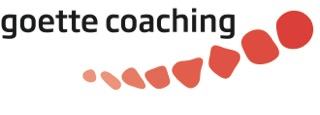What is Coaching
How to select a coach ?
Talk to several coaches and find one you have a rapport with.
Ask for a sample session and check in with yourself: Does the coach listen well? Do you feel they clearly understand what you want to achieve through the coaching?
Choose someone that is a member of the International Coach Federation (ICF) and is therefore governed by professional practice and ethics guidelines. This is important. The ICF is the governing body of professional coaches.
Other important questions to ask:
- Have potential coaches spell out what services they deliver, and what the total cost of those services will be.
- What is your coaching experience (number of individuals coached, years of experience, types of coaching situations, etc.)?
- If you are looking for specific help on various career or business agendas, make sure your coach has the relevant business background.
- What is your coach-specific training (enrolled in an ICF approved training program, other coach-specific training, etc.)?
- What is your coaching specialty or areas in which you most often work?
Coaching philosophy used by Goette Coaching
There are a number of coaching training companies worldwide. “Co-Active Coaching” is a coaching methodology founded by The Coaches Training Institute, USA, one of the most renowned coaching schools in the World. Co-Active® Coaching is a non-directive, dynamic and holistic coaching method.
Based on a uniquely developed model, Co-Active Coaching approaches people as basically resourceful, creative and whole. It is based on the power and potential of the individual. Honoring the values of the client will create ambitions and lead to a specific result the client wants to reach. Linking the client to both, his ambitions and a specific result is the core of the coaching process, as it starts a powerful intrinsic motivation cycle.
The client is ready for achieving the result for changing old behavior patterns. In addition, this approach requires powerful choices from the client, which connect the individual with (latent) talents and underline personal potential. This process is necessary to overcome restraints that naturally appear in the change process. Moreover, new talents will be discovered and new behaviors can be experienced.
The coach is facilitating and supporting the process in a non-directive way. He or she is focusing on the whole person and holds the focus of what the client really wants to achieve with their leadership. The coach is not positioned as a subject matter expert but rather a facilitator of the client’s own introspective process and subsequent actions.
The Co-Active Model in detail
Co-Active Coaching is an experience of personal and professional development unlike other kinds of coaching. Based on the Co-Active Model, it begins by holding the coachee as naturally creative, resourceful and whole, and completely capable of finding their own answers to whatever challenges they face.
The job of a Co-Active Coach® is to ask powerful questions, listen and empower to elicit the skills and creativity a client already possesses, rather than instruct or advise. Co-Active coaching uses an array of proprietary tools developed by CTI that have been proven as the gold standard over the past 20 years of the coaching profession.
The Co-Active Model balances self-awareness, a keen agility with relationships, and courageous action to create an environment where individuals can be deeply fulfilled, connected to others and successful in what matters most. The “Co” in Co-Active suggests relationship, connection, intimacy and collaboration.
Thus, the “Co” in us is curious, listens deeply, hears nuance, holds space for others, intuits and nurtures. The “Active” in Co-Active stands for power, direction, action and manifestation. So, the “Active” in us is courageous, has clarity and conviction, takes charge and achieves goals. The magic happens in the dance between “Co” and “Active” — action that arises from presence, deep relationship and context…and presence that is channeled into dynamic action and contribution.
Balancing and blending these energies allows us to move out of an “either/or” paradigm into a “yes/and” paradigm. In our performance-rewarding environment, it’s easy to lose sight of the value of real connection, intimacy, self-awareness, listening deeply to and nurturing others – the very qualities that inform and inspire what we do, restore us and give our lives fulfilling meaning. (Source: www.thecoaches.com)
